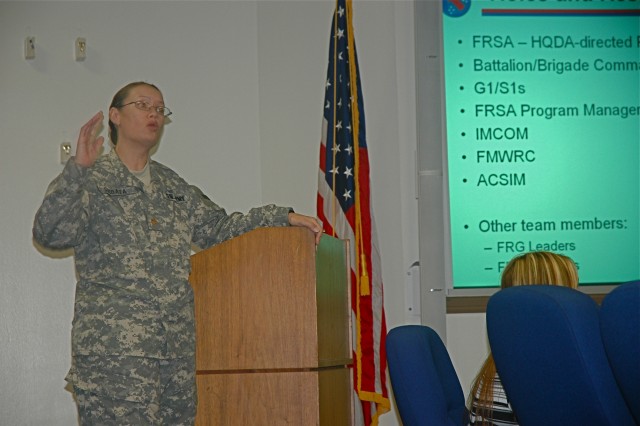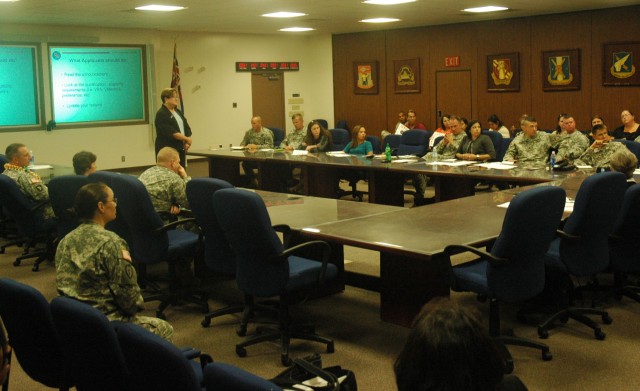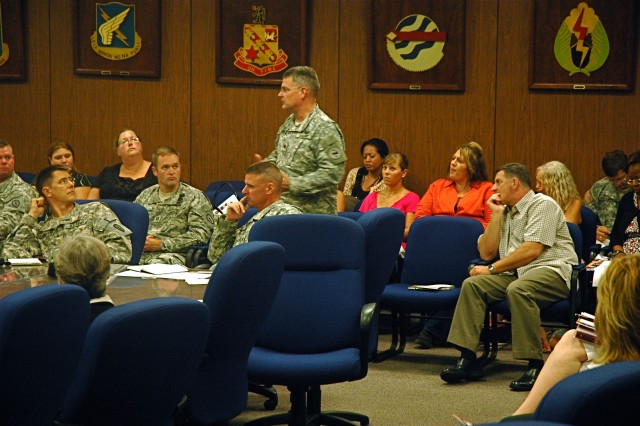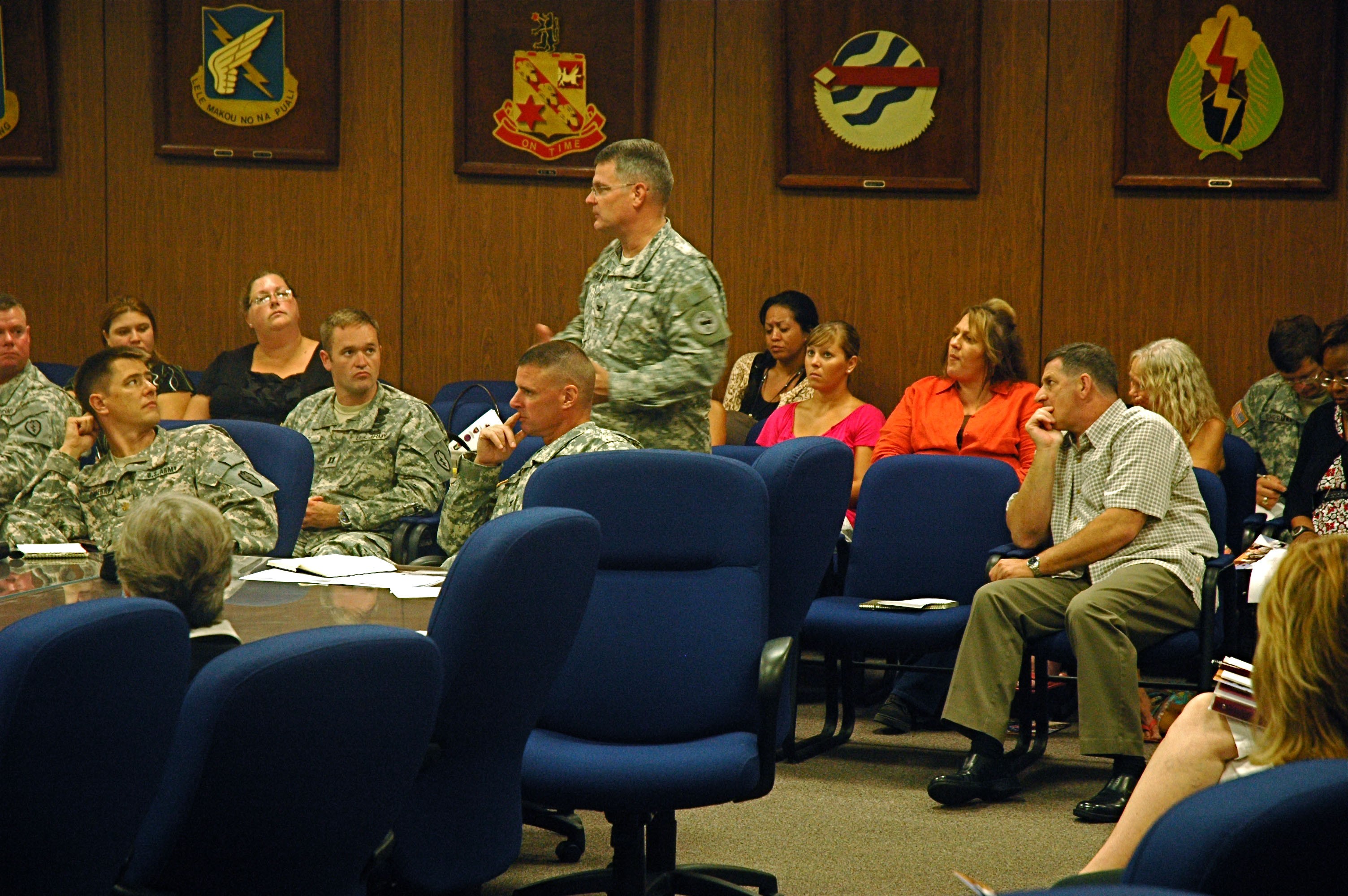SCHOFIELD BARRACKS, Hawaii - For the first time in 14 months, family readiness support assistants (FRSAs) collectively huddled with U.S. Army-Pacific (USARPAC) officers for an FRSA Town Hall meeting, here, Sept. 9, in the Schofield Barracks Main Post Conference Room.
About two-dozen FRSAs and brigade and battalion commanders, received instruction on administrative, standardized training and performance evaluation issues.
Most of all, the attendees hoped to address growing concerns within the ranks relating to the impending civilian hiring process, as USARPAC begins converting FRSAs from temporary or "term" employees into permanent hires over the next 12 months.
For many, the potential threat of losing their jobs to someone else after months of service within unit family readiness groups (FRG), weighed heavily upon both their and their commanders' minds.
During the meeting, FRSAs were informed that their jobs would be permanently filled through competitive and non-competitive measures - with eligibility for either measure based upon an individual's ability to meet job description criteria.
"It was the miscommunication about conversions to permanent that was our biggest bone of contention," said Jessica Burmeister, an FRSA with the 2nd Brigade, 225th Brigade Support Battalion.
Currently, 25 of the 48 FRSAs serving battalion or brigade commanders for USARPAC are located in Hawaii. The remaining 23 are stationed in Alaska and Japan.
The FRSAs were encouraged to update their resumes, many of which fail to accurately document volunteer work experience or other job-related responsibilities and achievements.
"If you merely say 'I volunteered for Army Community Service (ACS) from June '06 to June '08,' that doesn't tell personnel what you did. They can't read between the lines," explained Sandra Chun, Civilian Human Resource Division director, USARPAC, G-1. "In order to receive credit, you need to rework your resumes."
Meanwhile, commanders in attendance were encouraged to develop recruitment strategies and have their program managers (PM) recommend salaries for FRSAs. Above all, they were instructed to determine what is best for all those that fall under their watch within the family readiness program.
"We don't want to box you in," said Col. Barry Swain, chief of staff, USARPAC, G-1. "We want to give you broad guidelines and policies, and then back you up."
Following the meeting, FRSAs expressed relief at the new information provided.
"A lot of our frustrations came from not knowing how to respond to our commanders' questions because we didn't know the answers ourselves," said Geralyne Miggins, an FRSA with the 45th Sustainment Brigade. "Now, we have a better understanding."
Burmeister agreed.
"I was glad that things were finally clarified for us in a way that can be understandable for our managers and us," Burmeister said.
An FRSA for the past 22 months, Burmeister added that she now feels better about her future.
Maj. Makalena Shibata, branch chief for Morale, Welfare and Recreation (MWR), complimented the FRSAs for being a vital part of a team that provides support to more than 73,000 family members in USARPAC, and 22,000-plus Soldiers currently deployed.
"In order to help you do your jobs, we all have to understand our roles and responsibilities," stated Shibata, who conducted the meeting. "Basically, that's why we're here, to help you do your jobs. You folks are important, valued team members."
The FRSA program was initiated in 2003 after it became apparent that Army families needed help during times of rapid deployments. FRSAs serve as a component of a commander's unit family readiness program, providing administrative assistance and logistical support to the FRG leader and rear detachment commander.
Aside from easing the workload of volunteer FRG leaders, FRSAs can help ensure effective communication between family assistance and family support programs.
Since the launch of the program six years ago, more than 1,000 FRSAs have been placed in deployable active, Guard and Reserve battalions.






Social Sharing